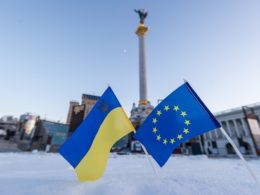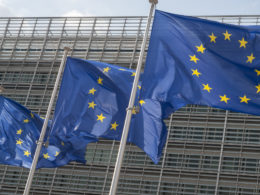The European Union is working on a plan to offer Ukraine loans of up to €40bn ($46bn) by the end of 2024, potentially without US involvement, the Financial Times reports.
This move comes as a previously agreed G7 plan to use frozen Russian assets to support Kyiv faces obstacles. According to the FT, Brussels is concerned that Hungary may block the safeguards needed for US participation in the frozen asset scheme.
"We could always go on our own," an EU official told the FT, highlighting the bloc's readiness to act independently if necessary.
The proposed loans reportedly aim to address Ukraine's financial stability concerns. Kyiv and the IMF estimate that the country faces a $38bn financing gap in 2025, with Ukraine relying heavily on foreign aid to maintain its operations as Russia intensifies attacks on its infrastructure.
The EU's plan involves expanding an existing aid program, which would require only majority support rather than unanimity, effectively bypassing Hungary's potential veto. The final loan amount could range between €20bn ($22 bn) and €40bn ($46bn), to be determined by the European Commission after consulting member states.
Hungarian Prime Minister Viktor Orbán, described as "the EU's most pro-Russia leader" by the FT in the report, is currently blocking an extension of EU sanctions on Russian assets. This extension is crucial for providing the legal certainty demanded by the US for its participation in the loan scheme.
If the EU decides to proceed independently, it must act quickly due to the expiration of the existing financial support package for Ukraine at the end of this year. "It is urgent to adopt the proposals before the end of October so that the Union loan can be released before the end of 2024 for future disbursements in tranches," the draft legal proposal states, according to the FT.
The EU's proposed loan would still utilize proceeds from frozen Russian assets, estimated at €2.5 ($2.8 bn) to €3bn ($ 3.4 bn) annually, for repayment. Currently, these profits are directed to Ukraine through the EU budget.
Read also:
- EU responds to Putin’s threats about direct involvement in war
- US and EU reiterate transatlantic concern over Chinese support for Russia’s war against Ukraine
- EU supports Zelenskyy’s Peace Formula, insisting on Ukraine’s sovereignty in any peace deal




